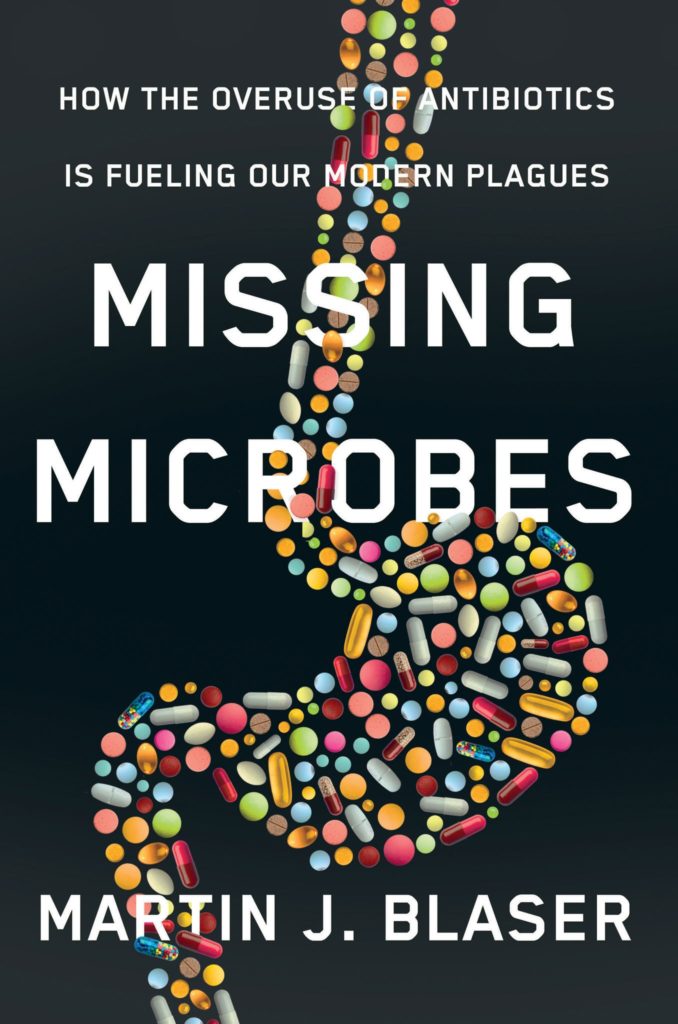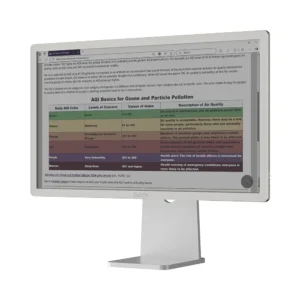When Alexander Fleming examined a mold that had developed accidentally on contaminated staphylococcus culture plate in 1928, he noticed that the culture prevented the growth of staphylococci, and he had no idea what he was really discovering. What he discovered would eventually be called penicillin, the first ever antibiotics discovered. Penicillin and other antibiotics are particularly effective in treating injuries, without antibiotics, a lot more lives would be lost due to bacteria infections.
The discovery of penicillin revolutionized medicine; it’s no exaggeration to say that antibiotics are the No. 1 life saver.
After 80 years of discovery, the use of antibiotics is prevalent. Cough? Doctor prescribes antibiotics. Fever? Another dose of antibiotic. Antibiotics are being prescribed quite unscrupulously and in such a high frequency that by the age of 20, a person in developed countries had been administered on average no less than 17 doses of antibiotics.
Not only that, the younger a child is, the more likely he or she is being administered antibiotics. Parents generally care a lot about their children, and they would often send their kids to see pediatrics when a flu strikes or when a fever just won’t come down. Pediatrics, under the pressure of the parents ( and also the pharmaceutical companies), would often prescribe antibiotics unnecessarily and too early because they also want to see the child get well soon.
Antibiotics are powerful, no one can deny that; they kill bacterias and microbes colonies in human body very effectively, which makes them wonderful weapons against bacteria infections. But Antibiotics are also blanket drugs that kill all bacterias, good or bad alike. After using antibiotics for so long, are we now suffering from their side effects?
According to Martin Blaser, the author of “Missing Microbes: How the Overuse of Antibiotics Is Fueling Our Modern Plagues “, the answer is an alarming yes, and we need to do something, so that the good microbes that live in a symbiosis relationship with human being for hundreds of thousands of years will continue to survive. A robust micro-biodiversity within human body is essential or us to remain healthy and functional.

Martin J. Blaser is the director of the Center for Advanced Biotechnology and Medicine at Rutgers Biomedical and Health Sciences and the Henry Rutgers Chair of the Human Microbiome and professor of medicine and microbiology at the Rutgers Robert Wood Johnson Medical School in New Jersey. His area of expertise is H. Pylori, a microbe that was thought to cause stomach ulcers and stomach cancers.
H. Pylori is discussed at length in the book because the study of it perfectly captures the state of affairs. When the researchers discovered that H. Pylori played an important role in developing various diseases such as idiopathic thrombocytopenic purpura, iron deficiency anemia, atherosclerosis, Alzheimer’s disease, multiple sclerosis, coronary artery disease, periodontitis , pharmaceutical companies scrambled to develop antibiotics that neutralize the effects of the bacteria. And through the continuous improvements in sanitation and socioeconomic conditions, the prevalence of H. pylori colonization of the gastrointestinal tract has declined in many countries.
But those who think that human is winning the war against the evil bacteria, based on this example, is misguided; recently researchers found that the presence of H. Pylori also has protective effects on human bodies, such as preventing asthma, obesity , celiac disease and inflammatory bowel disease. The period where antibiotics are used to kill H. Pylori coincides with the rise of asthma and other diseases. So are we really doing better by getting rid of H. Pylori? The conclusion looks less certain today than twenty years ago.
And of course, what doesn’t kill you makes you strong. However powerful an antibiotic is, there are always some remnant of the bacteria that just won’t die, and they grow stronger after a few generations, thanks to the natural selection principle. So bacteria and antibiotics are always engage in an arm race– bacteria will get more powerful, that requires stronger antibiotics to kill; and as antibiotics get stronger, so will the bacteria. That’s why doctors are increasingly administering stronger and stronger antibiotics against the seemly innocuous flu, because the older ones just aren’t effective anymore. Stronger antibiotics have the nasty effects of eliminating even more good microbes in our body as collateral damage, in the end, they just make us more sick… it’s a vicious cycle.
In the book Martin also speculates that could it be that H. Pylori is beneficial to human when they are young, but only turn rogue when they become old? We don’t really know yet. But the symbiosis in nature is complicated. The microbes that live inside your body most likely do provide some benefits ( or at least, no harm) to you for a period of time, because if they were harmful, your ancestors as their hosts would not survive. So any effort to eradicate any long lasting microbe colonies inside your body is going to be risky, much like hunting a species to extinction in an ecological system is risky because this disturbs the equilibrium, however predatory the species might look.
There are other problems with the current practice of manufacturing and administering of antibiotics. Pharmaceutical companies are typically not interested in developing antibiotics that target only selected few microbes, simply because it is not economical to do so. Why develop drugs that can only benefit a few thousands, when you can develop drugs that can benefit millions at the same cost? But the problem of developing all-powerful, blanket antibiotics has the side effects of killing other residing microbes in human body that do provide benefits. It’s like a nuclear weapon that nukes everyone out, good or bad guys alike.
Antibiotics are also been administered indiscriminately; I’ve already mentioned an example of antibiotics misuse in the beginning of this post, but other (mis)administrations are even more profound and less well-known. Farm animals were being fed antibiotics not really because they needed to be kept healthy in an unsanitary condition, but really because the antibiotics were found to increase the weight of the animals and hence, the gain of the farmers. In other words, antibiotics were being used as a cheap growth steroid on animals. As we consume the animals, the antibiotics go into our body and accumulate inside it. Another example is Cesarean birth. When a baby passes through mother’s womb to varginal and comes out of it, he or she accumulates microbes along the way and these microbes stay with him for the rest of his life. Cesarean birth bypasses this step and the baby is thus deprived of the ( largely beneficial) microbes. Not only that, antibiotics are used to prevent infection after the Cesarean, and they will go into baby’s body via breastfeeding, and they all add up, threatening the biomicro-diversity in human body
Antibiotics are meant to keep us safe and healthy, but the overuse of them can also make us more sick by eliminating the good microbes.
So, what can we do? The author gives a few suggestions:
- Reduce the use of antibiotics. In fact, resist in using them unless it is absolutely necessary. When developing a flu or cough, tell doctor that you are concerned about the overuse of antibiotics. A lot of doctors know the perils of overprescribing antibiotics, but they also fearful of being accused not skillful enough. In this case the fear usually trounces the good old doctor judgement. Not to mention that the more antibiotics he sells, the more income to him.
- Pass laws banning giving antibiotics to farm animals for the purpose of fattening them.
- Don’t do Cesarean unless you really have to. Not only it is expensive, but also it is less healthy for both the mother and the child
- Collect the microbes from people less contaminated by urban lives, and replanting them to urban population.
Missing Microbes is an important education about the use of antibiotics. If you have kids, and you must absolutely bring them to see doctor, be reminded that you can resist the temptation of antibiotics; tell the pediatrician that you really prefer seeing your kids well without them.
Yes, you really can, and must.





